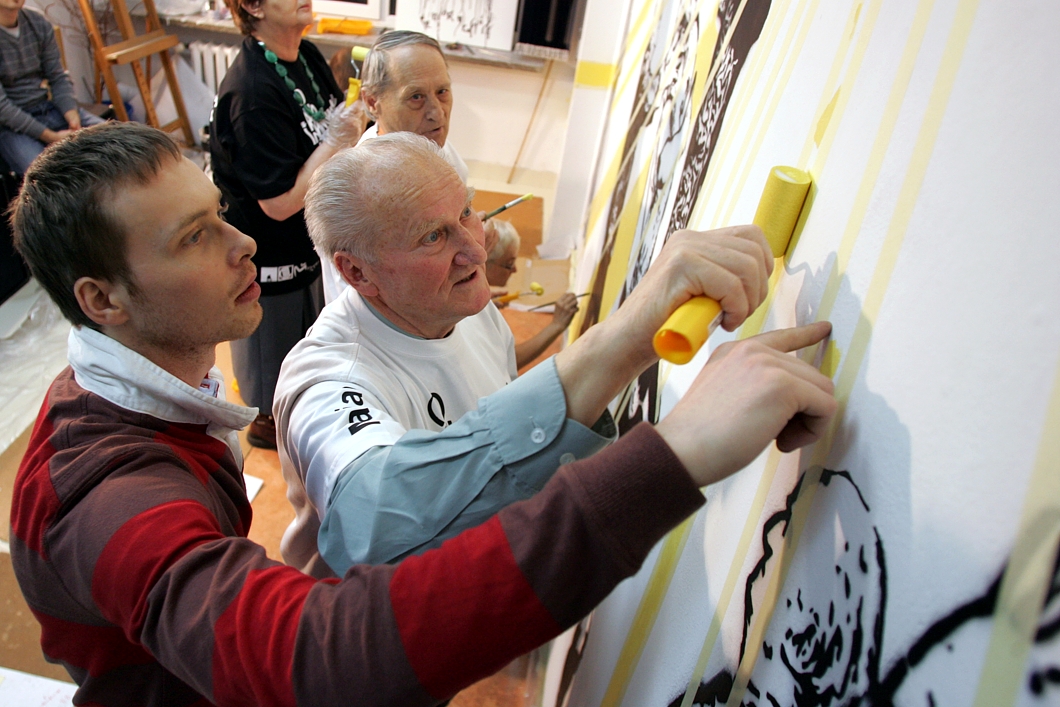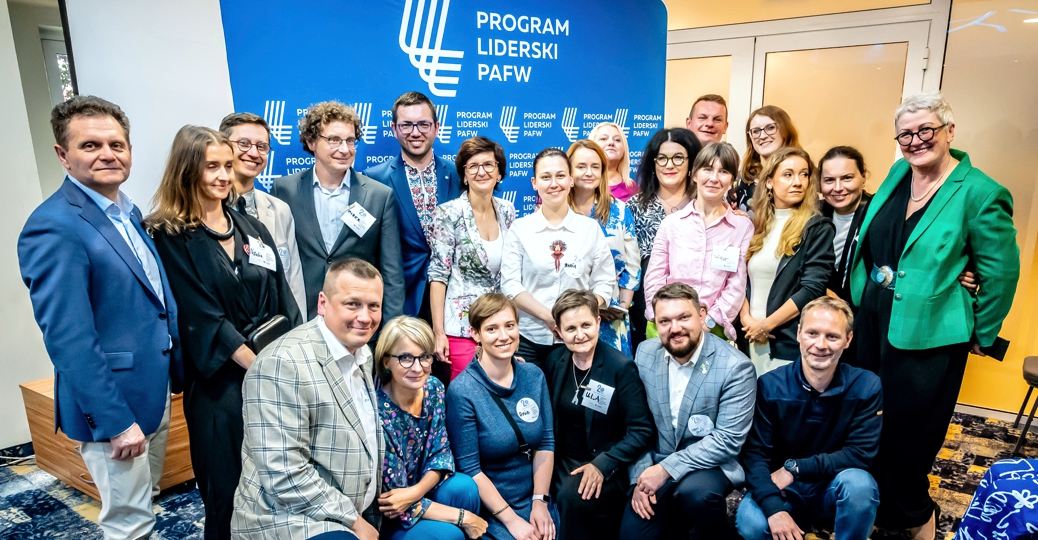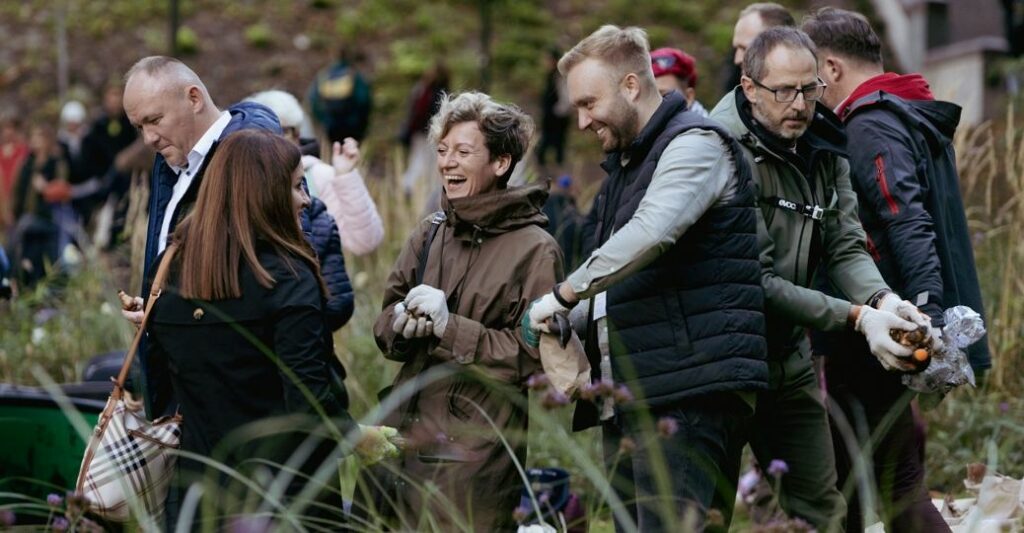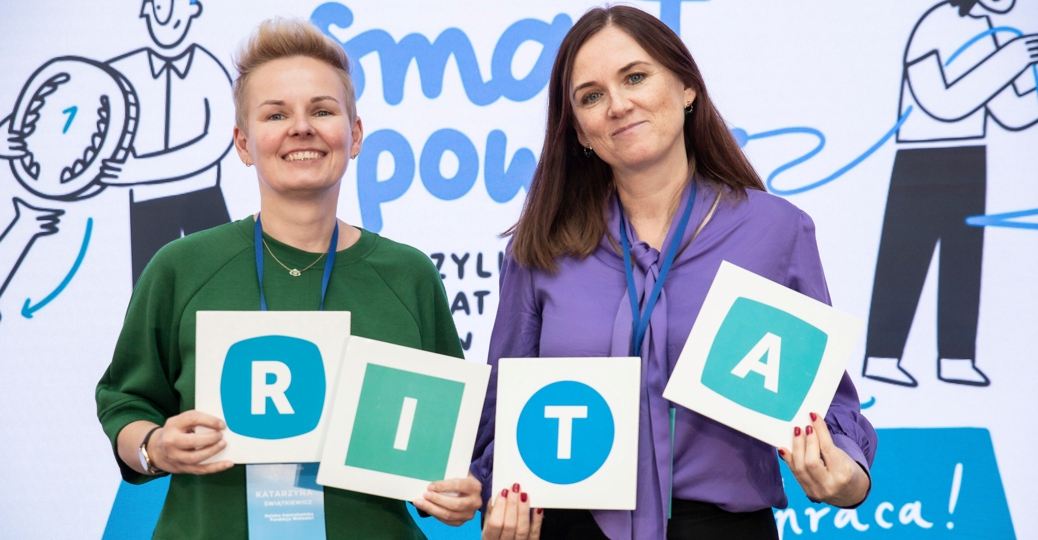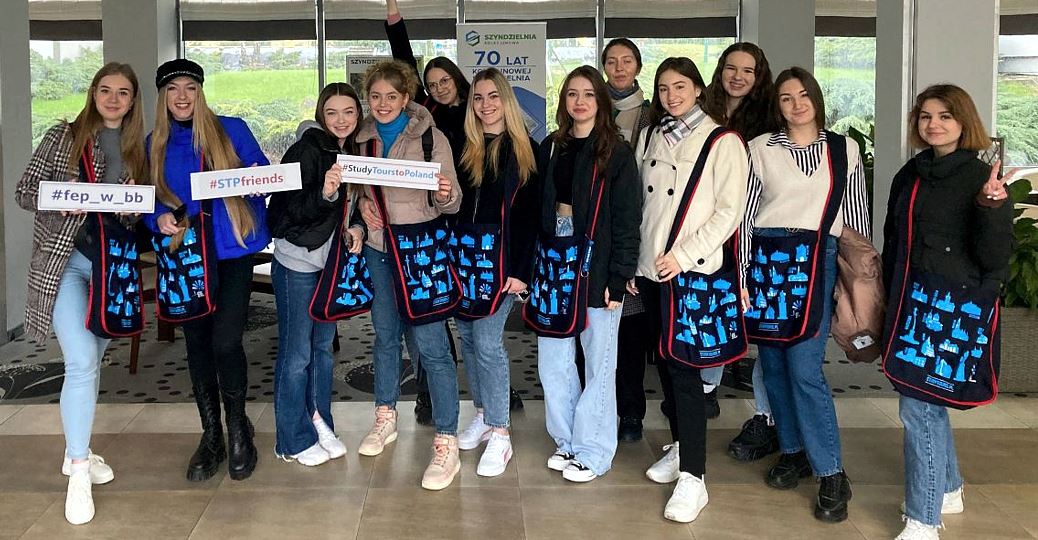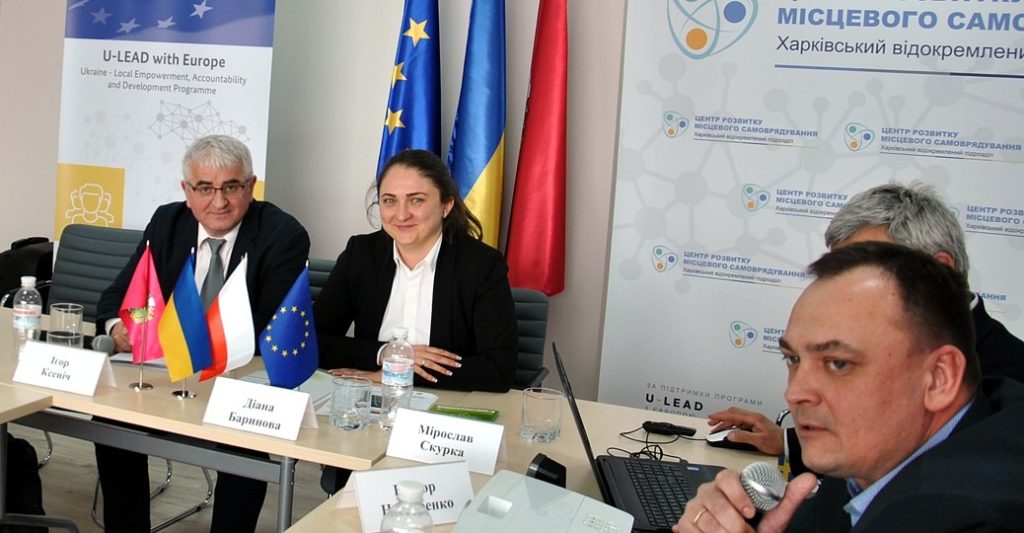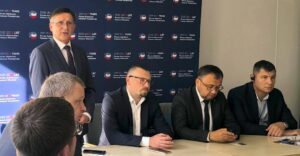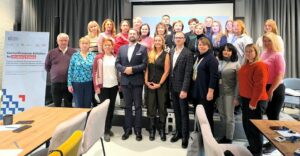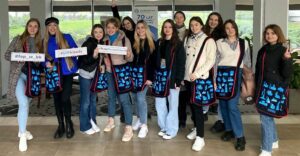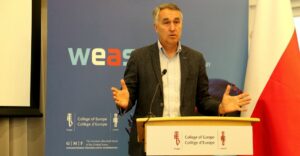As part of the support for local government reform in Ukraine, the RP Consulate General of the Republic of Poland in Kharkov had invited representatives of the “Study Tours to Poland” (STP) Program to cooperate in organization of meetings and lectures for local government bodies in Kharkov district.
Lectures, presentations and discussions were held in Kharkov, Krasnohiria and Nowa Wodolacha on March 12-14. They were conducted by Mirosław Skórka, “STP” Program Director, Dr. Igor Ksenicz, Chief Expert for international cooperation at the Marshal Office of Wielkopolskie Province, and Lilia Atnażewa, an expert for decentralization in Ukraine and alumnus of the Lane Kirkland Scholarship Program.
The meetings with local government representatives were an opportunity to have long and interesting discussions. “The reform has raised a wave of new hopes and stimulated a social dialogue in Ukraine. Thus, the participants asked us not only about Polish local government and how it operates, but also what they themselves should do for their communities,” Mirosław Skórka said.
Since 2014, the development of local government based on European countries experience has been one of the priorities of Ukrainian reforms. Poland has been supporting implementation of these changes from the very beginnings. The first stage of the local government development in Ukraine is establishment of new combined units (gromad) which correspond to Polish municipalities and rural communes. These units of administrative division are set up as a result of voluntary mergers of villages and towns, and constructing a system of joint administration as well as tools for implementation of own tasks. “Central administration supports that process by significantly increasing the budget of such newly-established units, but at the same time delegating a lot of new tasks which such new units have to implement effectively on their own. The reform has activated local communities – they have joined hands to build strategies of responsible development and started consultations and negotiations for the first time,” Mirosław Skórka of the Leaders of Change Foundation informed.
The meetings in Kharkov showed that the study tours to Poland are a real support and source of inspiration to Ukrainian local government representatives. The example can be Nova Wodolaha, one of the first combined units, which has been operating only since 2016 but has already turned out to be a great success. In a short time, they managed to create a modern Residents Service Office, Office for Investment and business support, redecorate a preschool institution, build modern playing fields with synthetic surface for two schools, and establish a bus line which takes people to the Center for free. Furthermore, they are now carrying out a process of school optimization – instead of seven small schools, they are setting up three big ones. Representatives of Nova Wodolaha local government note, that these changes would have been impossible without study tours to Poland and very active cooperation with Polish rural commune of Wiśniowa, Małopolskie Province.
The partner in implementation of the project was the Separated Self-Governing Regional Branch of Center for Local Government Development Support of Kharkov district. The Center is managed by Diana Barina, and her direct associate is Wiktor Nesterenko – both participants of a study tour to Poland under the “STP” Program for professionals in March 2014 r. “Thanks to experiences gained in Poland, our ideas of local government functioning got specific. That is an important benchmark for us and a role model,” say “STP” participants.









